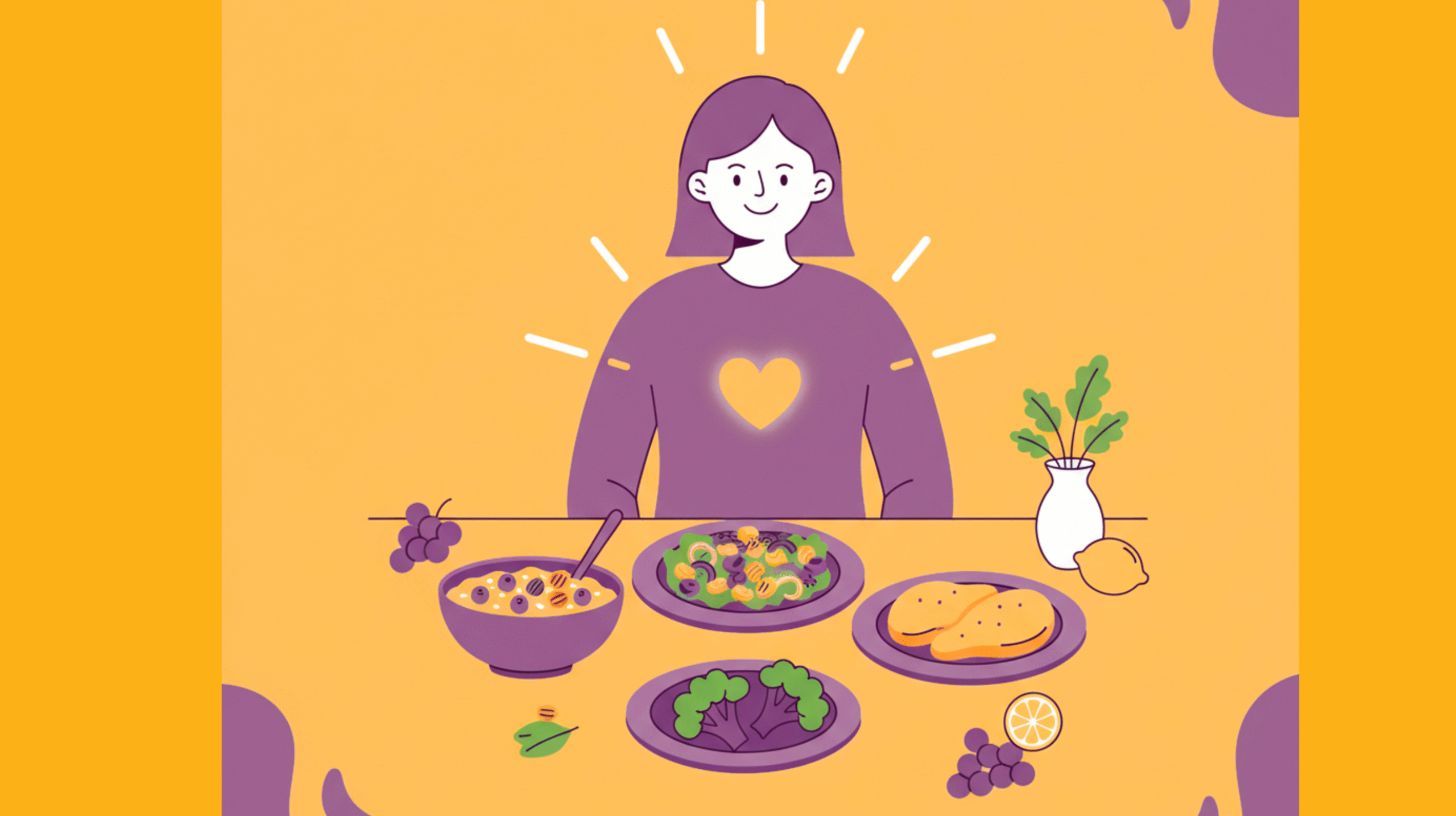Inflammation is the natural process of protecting the body against injury or infection. In case of acute inflammation, the body heals, whereas in chronic inflammation, blood vessels may destroy tissues without being detected and increase the chances of getting heart disease, diabetes, and arthritis. Diet matters a lot when it comes to managing inflammation; some foods can aggravate the situation, while some can help. One of the best, yet not complicated, practices aimed at improving immunity level, promoting healing and ensuring future health is preserved by adhering to an anti-inflammatory diet.
Understanding the Anti-Inflammatory Diet
Definition and Principles of the Diet
An anti-inflammatory diet emphasizes whole, minimally processed foods rich in antioxidants, fiber, and healthy fats. Key principles include:
- Prioritizing plant-based foods (fruits, vegetables, legumes, nuts, and seeds).
- Choosing healthy fats (olive oil, avocados, fatty fish).
- Incorporating lean proteins and whole grains.
- Using herbs and spices with anti-inflammatory properties, like turmeric and ginger.
- Limiting processed foods, refined sugar, and trans fats.
Scientific Evidence Linking Diet and Inflammation
Multiple studies show that diet directly influences inflammatory markers in the body, such as C-reactive protein (CRP) and interleukin-6 (IL-6). Diets rich in fruits, vegetables, whole grains, and omega-3 fatty acids lower these markers, reducing disease risk and promoting overall health.
Comparison with Other Diets
- Mediterranean Diet: Emphasizes olive oil, fish, nuts, and plant foods; extensively researched for anti-inflammatory benefits.
- DASH Diet: Originally designed for blood pressure control, rich in fruits, vegetables, and whole grains, and also shows anti-inflammatory effects.
- Plant-Based Diets: Focus on whole plant foods; low in inflammatory fats and refined carbs, providing antioxidants and fiber.
Role of Lifestyle Factors Alongside Diet
Diet alone is powerful but most effective when combined with healthy lifestyle habits:
- Regular physical activity reduces inflammatory markers.
- Adequate sleep supports immune regulation.
- Stress management techniques like meditation reduce chronic inflammation.
Benefits of an Anti-Inflammatory Diet
1. Reduced Risk of Chronic Diseases
Chronic inflammation underpins many diseases. An anti-inflammatory diet lowers the risk of:
- Heart Disease: By reducing arterial inflammation and improving lipid profiles.
- Diabetes: Helps regulate blood sugar and insulin sensitivity.
- Arthritis: Decreases joint inflammation and pain.
- Neurodegenerative Diseases: May reduce risk of Alzheimer’s and cognitive decline.
2. Supports Healthy Weight Management
Anti-inflammatory foods are nutrient-dense and high in fiber, promoting satiety and reducing overeating. Maintaining a healthy weight itself lowers systemic inflammation.
3. Improves Gut Health and Digestion
Fruits, vegetables, whole grains, and fermented foods provide prebiotics and probiotics that nourish gut bacteria [2]. A healthy gut microbiome supports immune function and decreases inflammation throughout the body.
4. Boosts Immunity and Reduces Oxidative Stress
Antioxidant-rich foods neutralize free radicals, preventing oxidative stress that triggers inflammation. Spices like turmeric, garlic, and ginger have been shown to modulate immune responses effectively.
5. Enhances Energy Levels and Mental Clarity
By stabilizing blood sugar and reducing inflammatory load, this diet improves overall energy and cognitive performance, making individuals feel more alert and focused.

Core Foods in an Anti-Inflammatory Diet
1. Fruits and Vegetables
- Berries (blueberries, strawberries): High in antioxidants and polyphenols [3].
- Leafy Greens (spinach, kale): Rich in vitamins, minerals, and anti-inflammatory compounds.
- Cruciferous Vegetables (broccoli, cauliflower, Brussels sprouts): Contain sulforaphane, which has anti-inflammatory effects.
2. Healthy Fats
- Olive oil, avocados, nuts, and seeds provide monounsaturated and omega-3 fatty acids.
- Omega-3s reduce production of pro-inflammatory cytokines.
3. Whole Grains
- Quinoa, brown rice, oats, and whole wheat are high in fiber, supporting gut health and reducing CRP levels.
4. Lean Proteins
- Fish (especially fatty fish like salmon and sardines), poultry, legumes, and tofu supply essential amino acids with lower inflammatory effects compared to red or processed meats.
5. Spices and Herbs
- Turmeric: Contains curcumin, a potent anti-inflammatory compound.
- Ginger: Reduces inflammatory markers.
- Garlic & Cinnamon: Support immune function and glucose metabolism.
6. Fermented Foods
- Yogurt, kefir, kimchi, and sauerkraut improve gut microbiome diversity, reducing systemic inflammation [4].
7. Hydration
- Water, green tea, and herbal teas help flush toxins and supply polyphenols with anti-inflammatory benefits.
Foods to Limit or Avoid
An anti-inflammatory diet is as much about what you avoid as what you include. Certain foods can trigger or worsen inflammation:
1. Processed and Refined Foods
- Packaged snacks, fast food, and ready-to-eat meals often contain additives, preservatives, and high sodium content.
- These foods promote oxidative stress and increase inflammatory markers like CRP.
2. Sugary Beverages and Snacks
- Soda, energy drinks, pastries, and candies spike blood sugar, leading to insulin resistance and systemic inflammation.
- Chronic sugar intake is linked to obesity, diabetes, and cardiovascular disease [5].
3. Trans Fats and Fried Foods
- Found in margarine, deep-fried items, and commercially baked goods.
- Trans fats increase LDL (bad cholesterol) and inflammatory cytokines, contributing to heart disease.
4. Excess Red and Processed Meats
- High intake of beef, pork, sausages, and deli meats is associated with elevated inflammatory markers.
- Opt for lean proteins, fish, and plant-based alternatives instead.
5. Refined Carbohydrates
- White bread, pastries, and white rice have low fiber content and a high glycemic index.
- Rapid blood sugar spikes trigger inflammatory pathways.
6. Excessive Alcohol Consumption
- Heavy drinking damages the liver, promotes oxidative stress, and exacerbates systemic inflammation.
- Moderate alcohol (like red wine) may have antioxidant benefits, but overconsumption is harmful [6].
Sample Anti-Inflammatory Meal Plan
A well-structured meal plan makes it easier to follow the diet and maintain consistency. Here are ideas for each meal:
Breakfast Ideas
- Oatmeal with Berries & Nuts: Oats provide fiber; berries offer antioxidants; nuts add healthy fats.
- Avocado Toast on Whole Grain Bread: Provides monounsaturated fats and fiber.
- Smoothie Bowls: Blend spinach, banana, berries, chia seeds, and unsweetened almond milk.
Lunch Ideas
- Mediterranean Quinoa Salad: Quinoa, chickpeas, cherry tomatoes, cucumber, olive oil, and lemon dressing.
- Lentil Soup with Vegetables: Lentils provide protein and fiber; add turmeric and garlic for anti-inflammatory effects.
- Grilled Salmon Wrap: Whole-grain wrap with salmon, spinach, avocado, and tomato.
Dinner Ideas
- Turmeric Chicken with Brown Rice & Steamed Broccoli: Curcumin in turmeric reduces inflammation [7].
- Veggie Stir-Fry with Tofu: Use olive oil and ginger for flavor and anti-inflammatory benefits.
- Baked Cod with Greens: Fish rich in omega-3 fatty acids, paired with kale or spinach.
Snack Options
- Mixed nuts or seeds (almonds, walnuts, pumpkin seeds).
- Hummus with carrot, cucumber, or bell pepper sticks.
- Green tea or herbal teas with antioxidant properties.
- Fresh fruit with nut butter.
Tips for Following an Anti-Inflammatory Diet
- Plan Meals and Grocery Lists Ahead: Prevents reliance on processed foods.
- Cook with Anti-Inflammatory Spices: Turmeric, ginger, garlic, cinnamon, and cayenne enhance flavor and reduce inflammation.
- Incorporate More Plant-Based Meals: Even partial plant-based days improve gut health and reduce inflammatory load.
- Practice Mindful Eating: Eat slowly, focus on portion sizes, and enjoy food without distractions.
- Balance Diet with Exercise and Sleep: Movement and quality sleep complement anti-inflammatory effects.
Common Myths About Anti-Inflammatory Diets
Myth 1. “It’s Only for People with Arthritis or Chronic Disease”
- While beneficial for these conditions, the diet is suitable for anyone seeking preventive health benefits.
Myth 2. “You Must Give Up All Carbs”
- Not all carbs are bad. Whole grains and fiber-rich foods are anti-inflammatory and support digestion.
Myth 3. “Supplements are Better Than Real Food”
- Whole foods provide a combination of nutrients and phytochemicals that supplements alone cannot match.
Myth 4. “It’s Too Restrictive or Expensive”
- Many affordable, seasonal fruits, vegetables, legumes, and whole grains fit the diet. Meal planning reduces costs.
Who Should Consider an Anti-Inflammatory Diet?
- People with Chronic Conditions: Arthritis, autoimmune disorders, and diabetes benefit from reduced inflammation.
- Athletes: Speeds recovery and reduces post-exercise inflammation.
- Older Adults: Supports healthy aging, mobility, and cognitive function [8].
- Anyone Seeking Long-Term Disease Prevention: Helps maintain heart, metabolic, and brain health.
10. Safety Considerations and Professional Guidance
- Importance of Personalized Nutrition Advice: Individual needs vary; consultation with a dietitian ensures nutrient adequacy.
- Potential Nutrient Deficiencies: Vegan or highly restricted diets may need attention to vitamin B12, iron, calcium, and omega-3 intake.
- When to Consult a Dietitian or Healthcare Professional: Chronic illness, pregnancy, or significant dietary changes require professional oversight.
- Special Considerations: Pregnancy, allergies, medications, and chronic illness may affect food choices and portion sizes.
Conclusion
An anti-inflammatory diet is also one of the viable methods to reduce chronic inflammation, improve your health, and prevent sickness. Emphasis on healthy foods, reduction of the pro-inflammatory triggers, and modification of sleep and lifestyle practices can help in grabbing the maximum benefits. A simple and healthy diet is beneficial for the betterment of your health; you only have to stress conscious eating and planning meals beforehand and incorporate fermented products, herbs, and spices for the best results.
Learn in what other ways you can improve your well-being for healthy living:
Frequently Asked Questions;
1. What is the best anti-inflammatory diet?
Diets rich in fruits, vegetables, whole grains, lean proteins, healthy fats, and anti-inflammatory spices are best. Mediterranean and plant-based diets are often recommended.
2. Which foods reduce inflammation the fastest?
Berries, fatty fish, leafy greens, olive oil, turmeric, and ginger are particularly potent for lowering inflammatory markers.
3. Can an anti-inflammatory diet help with arthritis pain?
Yes, research shows it can reduce joint pain and stiffness, especially when combined with regular exercise and weight management.
4. Is the Mediterranean diet considered anti-inflammatory?
Yes, it emphasizes fruits, vegetables, whole grains, olive oil, and fish, all of which have anti-inflammatory effects.
5. How long does it take to see results from an anti-inflammatory diet?
Some benefits, like improved energy and digestion, may appear within 1–2 weeks. Reduction in chronic inflammation and disease risk may take several weeks to months of consistent practice.
References
- Tur, J. A., Bibiloni, M. M., Sureda, A., & Pons, A. (2012). Dietary sources of omega 3 fatty acids: public health risks and benefits. British Journal of Nutrition, 107(S2), S23-S52. DOI: https://doi.org/10.1017/S0007114512001456
- Dahiya, D., & Nigam, P. S. (2022). Probiotics, prebiotics, synbiotics, and fermented foods as potential biotics in nutrition improving health via microbiome-gut-brain axis. Fermentation, 8(7), 303. https://doi.org/10.3390/fermentation8070303
- Gündeşli, M. A., Korkmaz, N., & Okatan, V. (2019). Polyphenol content and antioxidant capacity of berries: A review. International Journal of Agriculture Forestry and Life Sciences, 3(2), 350-361. https://dergipark.org.tr/en/pub/ijafls/issue/47015/649812
- Paul, A. K., Lim, C. L., Apu, M. A. I., Dolma, K. G., Gupta, M., de Lourdes Pereira, M., … & Nissapatorn, V. (2023). Are fermented foods effective against inflammatory diseases?. International journal of environmental research and public health, 20(3), 2481. https://doi.org/10.3390/ijerph20032481
- Malik, V. S., Popkin, B. M., Bray, G. A., Després, J. P., & Hu, F. B. (2010). Sugar-sweetened beverages, obesity, type 2 diabetes mellitus, and cardiovascular disease risk. Circulation, 121(11), 1356-1364. https://doi.org/10.1161/CIRCULATIONAHA.109.876185
- Snopek, L., Mlcek, J., Sochorova, L., Baron, M., Hlavacova, I., Jurikova, T., … & Sochor, J. (2018). Contribution of red wine consumption to human health protection. Molecules, 23(7), 1684. https://doi.org/10.3390/molecules23071684
- El-Sayed, E. Z., & Hamdy, D. N. M. (2023). Addition of The Modified Turmeric Extract (Curcuma longa L.) to Food and its Functional Effect on Cancer-Related Liver Inflammations. Egyptian Journal of Food Science, 51(2), 199-210. DOI: 10.21608/ejfs.2023.213441.1166
- Stromsnes, K., Correas, A. G., Lehmann, J., Gambini, J., & Olaso-Gonzalez, G. (2021). Anti-inflammatory properties of diet: role in healthy aging. Biomedicines, 9(8), 922. https://doi.org/10.3390/biomedicines9080922























